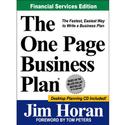Author Archives: Richard Emmons
Author Archives: Richard Emmons
 In “Finding More Time for Marketing – Part 2,” we looked at ways to cut your time spent on administrative activities. Now we’ll look at a few ways to free up time for marketing by cutting down time you spend on “Operations” which you know better as production activities.
In “Finding More Time for Marketing – Part 2,” we looked at ways to cut your time spent on administrative activities. Now we’ll look at a few ways to free up time for marketing by cutting down time you spend on “Operations” which you know better as production activities.
Becoming more efficient on the production side does two things for you:
#2 is key because you (and your staff) must handle more clients in the same 8-hour day. Otherwise getting more clients robs time from marketing activities. When you neglect marketing, the well runs dry and you run out of prospects. Not good. Not fun either.
Whether your practice is large or just getting started, technology correctly used can quickly improve your operational efficiency. One hour saved per day means over 250 additional hours over a given year. Time better spent getting and serving clients.
Some time ago, I had a client with decades of experience, excellent credentials, and happy clients in more than a dozen states. Yet he was a technology newbie to the extreme.
When I emailed him some questions, his assistant would print out the email for him. He would handwrite his comments and give it back to his assistant. She would fax it to my office. My assistant would call me to let me know I had a fax. When I was away from my office, I’d have her scan it in and email it to me. Incredible!
Thankfully, he got a new computer and some training, and soon replied to my emails with another email. And he freed up his assistant for more productive tasks.
Yet don’t fall into the trap of adding technology just for technology’s sake.
A client of mine is a member of the 300 Financial Group which takes a “Goldie Locks” view of technology. Not too much technology, not too little…just the right amount. In 300 Financial’s view, technology should:
You can learn more about 300 Financial’s technology approach by clicking here.
Go Paperless
Going paperless helps you in many ways: less office space needed, more productive staff, and less time preparing for client meetings.
One advisor I know went paperless from the beginning of his practice and has instant access to all client communications. And very few file cabinets in his office.
I know another advisor in the same town which has a huge room filled with file cabinets. And support staff which spends many hours every day keeping track of the paperwork and getting everything filed properly.
Obviously newly established practices have the advantage here: no file cabinets holding decades of client records. Yet practices with tens of millions of assets under management gain the most from office automation because your support staff can become far more productive.
Depending on your situation, this may be an incredibly daunting task. Yet the longest journey is begun with the first step so read these articles on ways to get started.
No More Fax Machine
7 Ways to “Say it” and not “Type it”
Autopilot Computer Backup
Track your time and see where all the time goes. Decide how much time you need to devote to marketing your practice each week. Then get started on reducing time spent on administration and advising. You’ll free up time for marketing your practice and reap the rewards later.
When I got my first laptop computer back in 1994, I’d didn’t get it without a fight. Not with my wife…my boss.
I’d previously convinced the president that the salesmen needed laptops. Now I wanted one. Joe was adamant that I didn’t need one and they cost way too much. So I kept pushing….
Joe relented only after I told him not to get me a laptop unless he wanted me to work on company business at home, on airplanes, and in hotel rooms. He said, “Okay, okay already. Now get out of my office!”
 My productivity did soar as I could work wherever I happened to be. I was unchained from my desk. Finally. If I had to work a 12 hour day I could take several hours of work home with me. Even to the beach.
My productivity did soar as I could work wherever I happened to be. I was unchained from my desk. Finally. If I had to work a 12 hour day I could take several hours of work home with me. Even to the beach.
Yet suddenly many documents and spreadsheets suddenly were unchained from the network. And the server’s automated backup.
I had to back up my laptop myself or risk losing precious data. And eating crow when explaining what happened to Joe. I couldn’t let that happen so I began a weekly practice of backing up my computer every Friday…and during the week if I completed a major project.
I’ve used everything to backup: floppy disks, CD-ROMs, DVDs, thumb drives, external drives, and even backing up to the network drive.
My backup habit paid off a few weeks ago when my trusty Acer laptop choked on an automatic update from Microsoft. Seems my 4-year old laptop couldn’t handle Internet Explorer 8. Fortunately it happened on a Saturday and I had a fresh backup from Friday!
I now am loving my 6th laptop: a Macbook Pro which runs Windows XP whenever I need it.
Mac’s now include a backup program called Time Machine which automatically backs up to an external hard drive. I like this because I no longer need to remember my Friday afternoon ritual. It just happens.
Yet the possibility remains that my laptop and external hard drive could be stolen at the same time and I’d be one hurtin’ dude!
So I added an entirely new layer of backup protection: Online backup.
 I use a service called Carbonite which you can read about here. For about $50 a year my documents, pictures, and music files are automatically backed up into “the Cloud.”
I use a service called Carbonite which you can read about here. For about $50 a year my documents, pictures, and music files are automatically backed up into “the Cloud.”
It took about 2 weeks to slowly upload over 40 gigabytes of data. Now it’s done and it keeps me backed up automatically, all of the time. No matter where I am. If I am connected to the web any changed files get backed up just as soon as I close them.
Amazingly they place no limits on how much you can back up. And the price includes both personal and business files so I have everything covered.
I’ve tested the service by restoring some files. Very easy and quick.
If my laptop died, I would just buy a new laptop and install Carbonite. Then restore all my data to my new PC. My productivity would be impacted for a while but I’d be back in business in no time.
This is cheap insurance and I strongly recommend you add it to your onsite backup practices.
 I have a client who is a painfully slow hunt and peck typist. And his handwriting isn’t any better. Yet he is a clear thinker and speaker. Let me share how he reduced his typing time by over 50%.
I have a client who is a painfully slow hunt and peck typist. And his handwriting isn’t any better. Yet he is a clear thinker and speaker. Let me share how he reduced his typing time by over 50%.
He used to take handwritten notes during client meetings and then type them into Act! before the end of day. He knew he had to do it and when he was busy his notes were less detailed and only hit the highlights. Sometimes the handwritten notes went into the folder with plans to type them in later. Often his assistant would ask him to decipher what he meant so she could get them entered into Act! While necessary, this process was tedious and always a pain in the neck. No longer.
Now he just calls in client meeting notes into his cell phone and gets a Word transcript in a couple hours.
He uses the CopyTalk mobile scribe service. You can leave a message up to 4 minutes long. So at 250 spoken words per minute, you can record about a thousand words. For comparison sake, this article is 662 words. Maybe you type 50 words per minute. This service would make you 5 times faster…and no hitting the backspace key to fix typos.
You really can “say it” and not “type it” and be a lot more productive. So let’s look at just how this works:
1. Eliminate Handwritten Client Notes. Immediately after every client meeting, my client calls a phone number, enters his cell phone number and a PIN. He then has 4 minutes to describe what happened in the meeting:
He hits the # key and it’s ready for another message. Within 2 hours he gets an email with his spoken words typed (by a human being) as a Word attachment. He attaches it to the client’s record in Act! and he is done. It saves an amazing amount of time and allows him to provide better service to clients. They think he has a prodigious memory because he recalls so much detail from the last meeting!
Now that you understand how the service eliminates the need for handwritten client notes, let me give you 3 other ways he uses this service.
2. Client letter creation. He drafts client letters by calling in and forwarding the email to his assistant. She just copies the message into the letterhead template and prints it for his signature.
3. Task Delegation. Instead of telling his assistant what he wants done, he delegates work with a detailed written description of what he wants done. And in much less time because he doesn’t need to slow down and wait for her to scribble down some notes.
4. Radio Scripts. He creates radio program scripts by practicing into CopyTalk. The printed “transcript” gives him something to reference in his own words.
Communication snafus with staff have been reduced saving them time and reducing frustration. Remember that helping your staff be more productive frees up their time for marketing activities as well. And handling more clients.
Click here and learn more about “Copytalk” services. Mention your broker/dealer and clearinghouse and you should get a discount off the monthly cost of $79.95.
 You should also take a look at Jott Assistant found at http://www.jott.com/. Jott offers more and less than CopyTalk.
You should also take a look at Jott Assistant found at http://www.jott.com/. Jott offers more and less than CopyTalk.
For $12.95 per month you can do an unlimited amount of 30 second voice to text conversions. 30 seconds means shorter messages, yet you can link Jott Assistant directly to Outlook, iPhone and Blackberry. Wherever you are, just call Jott and dictate….
5. Email drafts. Get the first draft done quickly when you’re away from your computer. Then clean it up when you get back and send it out.
6. Calendar appointments. This helps keep your calendar up to date so your assistant doesn’t double book you.
7. Tasks. You just call your number, leave your task, and it appears in your Outlook Task List. One less thing to remember to do.
Jott allows just 30 seconds per message so you need to speak quickly and to the point. We all should develop this habit.
You can try it for free for 7 days and see if it works for you. It really depends how much you’re away from your office (i.e. your PC.)
Like everything else, you need to weigh the benefits of these services against the cost. The advisor who told me about CopyTalk would never give it up…unless he found a cheaper alternative which does the same thing.
Give these services a try and let us know work for you.
 When you are trying to free up time to spend on marketing activities, admin is a great place to look.
When you are trying to free up time to spend on marketing activities, admin is a great place to look.
Admin includes all the backoffice activities which support the marketing and advising activities of the firm. You have one or more employee; you need payroll. You have vendors; you need to pay bills. You make a profit; you need tax returns. You have dust balls in the reception area; you need to vacuum. What’s that? You have a janitor for that? Great.
The general rule is to outsource everything you can: receptionist to answer calls, bookkeeper to pay bills and prepare payroll, CPA to prepare taxes, janitor to clean the office, and so on.
You may or may not enjoy these tasks. You may or may not have the education and experience to do them well. The point is to increase time spent on marketing means you save time elsewhere. Just because administrative activities need to get done does not mean you have to do them yourself.
I know one advisor who prepares his own personal and business income tax returns. As his practice continues to grow, this has got to go. Spending 4 hours every quarter for estimated taxes and 2 days in March for business returns and 2 days in April for personal returns means 8 days per year are spent on administrative tasks. This time can be better spent advising clients or marketing his practice.
Here’s a rule of thumb to consider: Outsource any task which can be done for less than your billable rate. If you charge out at $175 per hour, then pay a CPA $100 per hour to prepare your tax returns.
What if you’re an independent advisor without any staff? Do you need to do it all for the time being. Not necessarily. You just need to be more creative.
Consider locating your practice in a professional business center. Executive suites offer professional receptionist and administrative services on an as-needed basis. You have access to conference rooms when you need them. You pay a monthly fee which includes your office, telephone, fax, internet, janitorial and security. You save time because someone else deals with these various administrative services. Many executive suites allow conference room and day-use office access in affiliated business centers.
One advisor in New Jersey offers to meet clients in various cities to make it more convenient for his clients. So he not only saves time and money on administrative activities, he gets a marketing boost to boot.
Another possibility would be co-locating your office with a CPA or attorney. You’d benefit in many of the same ways as moving into an executive suite. Plus you’d be available for referrals from the accountant or attorney and get visibility from their walk-in traffic.
Either option means you don’t need to fill the role of Office Manager and deal with all the administrative details of running an office. You also add a receptionist between you and your clients and prospects which makes your firm bigger than just you.
And every minute you cut from admin means another minute spent on marketing.
 You want to grow your practice by increasing your focus on marketing activities. You know this will take time. Yet you feel overloaded these days already. Where can you find some more time?
You want to grow your practice by increasing your focus on marketing activities. You know this will take time. Yet you feel overloaded these days already. Where can you find some more time?
I remember a few years ago when my daughter was getting ready for her big sister’s high school graduation ceremony. Time was running short. She was getting stressed. Was it related to her hair or her outfit? I don’t remember. I do remember her crying out, “Time, time. I need more time!” Don’t you feel that way sometimes?
While you can’t create more hours in the day but you can change how you spend your time each day. How? Budgeting, of course!
The process for budgeting your time is the same for budgeting your money. You want to see how you’re spending your time now, set “time spending” goals, and then create a plan to reach your goals.
Let’s look at how time is spent in virtually every business…whether a one-man operation or Walmart.
Every business has 3 main activities: Marketing, Operations, and Administration.
Obviously, Walmart has entire divisions of people spending 100% of their time on some aspect of one of these 3 areas. Yet the CEO must oversee all 3 areas and ensure none is neglected. At the store level, the store manager has a few people in marketing, many in operations, and some in admin to do payroll, keep the lights on, and pay the rent.
How does this activity breakdown look like for financial advisors?
Based on conversations with many financial advisors, the general consensus is that “marketing is what I need to do, planning is what I like to do, and admin is what I hate to do but must do to keep out of trouble.”
So when time is tight which area gets neglected? Yes, marketing.
Now take a look at your calendar and see how you spend your time in marketing, operations and admin. Does your calendar only show time spent with prospects and clients?
In this case, you need to start tracking time spent on marketing and admin. You might be shocked at what you see. Or don’t see.
Just don’t be discouraged. Your business might be doing okay and you’re spending only a couple hours per week on marketing. Imagine if you started spending 30-40% of your time on marketing?
You’ll find it helpful to separate marketing into its two main functions: sales and marketing. What’s the difference?
Think of marketing as “leading the horse to water” and sales as “making him drink.”
Marketing is all about attracting new prospects as well as getting your existing clients to buy more and more often. You do this with your website, printed and e-mail newsletters, public seminars, advertising and all other ways of getting the word out. This also includes making it easy for your clients to refer their friends and relatives.
Sales is persuading that prospect in your office or conference room to place their trust (and money) with you.
Sales & marketing efforts work together to grow your practice. For example, any advisor without any marketing materials, advertising, or website has a much tougher job convincing the prospect in his office to become a client. Why? Because targeted marketing efforts attract more qualified prospects while screening out others. And marketing materials help tell your story well before your prospect walks in the door.
So your action item is to track your time in Sales/marketing, operations, and admin. In my next article, I’ll take a closer look at admin.
“The Cobbler’s son has no shoes.” ~anonymous
 This famous quote speaks about the successful Cobbler makes shoes for everyone in the village except his own children. Sound like anyone you know? Perhaps the CPA files hundreds of tax returns by April 15th but never his own. Or the Gardener who forgets to water his lawn in the middle of summer.
This famous quote speaks about the successful Cobbler makes shoes for everyone in the village except his own children. Sound like anyone you know? Perhaps the CPA files hundreds of tax returns by April 15th but never his own. Or the Gardener who forgets to water his lawn in the middle of summer.
Many advisors prepare retirement plans, estate plans, and business succession plans for others yet never sit down and prepare a business plan for their own practice. Sound like you?
Business plans traditionally took many hours to prepare, filled thick binders with pages and pages of market data, product and service plans, and financial forecasts. A business plan’s chief purpose was to get a bank or investor financing and was soon forgotten. Especially after the five figure consulting fee was paid. Was it used to run the business? You must be joking!
No wonder few businesses, including planning practices, prepare a plan and execute it to reach financial and practice goals. The cost in time, trouble, and money just wasn’t worth the perceived benefit.
Jim Horan’s series of books entitled, The One Page Business Plan has changed this gloomy picture for over 250,000 businesses since 1994. Now you can create a one page business plan to help define your practice, set goals, and define activities to help you reach your goals. In 2008, he wrote a Financial Services Edition which makes your job even easier.
The book walks you through a series of thought-provoking self-assessments and fill-in-the-blank templates to help you do the following:
Does this sound like a lot of work? Well, the book provides lots of examples to borrow from and a proven methodology. You also get a CD with Excel and Word documents to help you through the process. All very helpful.
But can you really do this by yourself? Yes and no. You can certainly do it yourself and by yourself. You’ll be miles ahead of where you are now without any business plan at all.
I recommend working with trusted advisors such as your partners, business coach and even your spouse. These “extra eye balls” will help you see your firm where it really is today and keep you from setting unattainable goals.
The value of this book far surpasses it’s list price of $34.95. Or its discount price at Amazon.com of $25.21.
Have I used the book? Yes, I created a one-page business plan for my living trust seminar business. That’s how I discovered the book because I needed a business plan for an attorney and I needed it fast. I’ll use the non-profit edition to help craft a business plan for our local Gospel Rescue Mission on whose board I serve. Another situation where I can’t create a lot of extra work for the executive director.
I’ll help my marketing consulting clients create one page business plans for their practices before I touch their websites or fix their yellow page ads. Or do anything else.
You won’t go wrong with this book. Get it, read it, and put it to use!
 You’re an independent financial advisor. You want to expand your practice. Should you get going today and “just do it”?
You’re an independent financial advisor. You want to expand your practice. Should you get going today and “just do it”?
For most advisors, the answer is “No.” Why is this?
Because you’ll probably end up wasting time and money and the effort will not succeed. Ouch.
I tell my clients that there is no magic marketing bullet which can easily and instantly expand your practice. I tell this to prospects because I don’t want a client with unrealistic expectations. Do you?
Imagine “Bob” calls your office for an initial consult. After introductions, you ask him what he wants you to do for him. Bob says with a straight face, “I lost 40% of my retirement portfolio when the market tanked. My current advisor pulled it out at the bottom so I missed the bounce. I want you to make up my losses in the next year. Can you do it?”
He throws his quarterly statement on your desk and you notice he has a million dollars in his account. Nice.
Time to bring Bob back down to earth, “Do you realize that making up a 40% drop in one year would require earning 67% on your money?”
Bob looks shocked. “I don’t want to take on that kind of risk at my age. What are my options?”
You explain how some combination of more time and more money can get his retirement portfolio back where it was. “You can increase your monthly contributions to the max and stretch out your time horizon to 5 years. This eliminates the need to use risky investments so you’re much more likely to reach your goal.”
Bob likes the sound of this and you land the account. Congratulations!
Now what does this story have to do with growing your practice?
If Bob had pressed you a bit, you might tell him there are no magic bullet investments that give high returns quickly with low risk. The same thing is true in the marketing world. With one important difference.
Making such bold promises as a financial advisor can land you in an arbitration hearing. Making bold promises as an ad rep helps land the account and make the sale. Ever hear of a newspaper giving a refund when no one attends your open house? Me neither.
Magic Bullet Marketing activities can include:
Almost any unproven, untested marketing activity done in haste qualifies as a magic bullet marketing activity. Or anything requiring “just a few minutes of your time and your major credit card….”
So the moral to the story is that expanding your practice takes time and money.
You can save time by hiring someone to help you get it done. Or you can invest your time and do it yourself when money’s tight.
I’d love to hear your comments on ‘magic bullet marketing’ efforts. Did you hit your target? Or fire a blank?
If you ran into an old buddy at your high school reunion, you’d probably be asked, “So what do you do?”
As an independent financial advisor, you have several ways to answer the question. What comes to mind first?
“I am a certified financial planner.” Or “I am a financial advisor.”
If he was curious to learn more, you might describe your approach to financial planning, estate planning, or risk analysis. You might talk about the financial markets, indexed annuities, or CD rates. You might mention the value of annual reviews and portfolio re-balancing.
This answer focuses on the main operational focus of your firm. It touches on your education, experience and what’s on your business card.
Yet in a big way you’d be wrong!
While you might really rather focus on planning all day long and every day of the week, the reality is that you need to see yourself as a “Marketeer.”
Just what is a “Marketeer”?
A “Marketeer” focuses on defining, reaching and serving his target market. This is job #1.
A Marketeer sees every aspect of his business as a way to enhance (or detract) from defining, reach and serving his targeted market. What does this look like?
Think the last bullet is a joke? Let’s take a closer look at this one.
If you only get one chance to make a good first impression, your receptionist will likely be the person to make it.
Will your clients care if she knows the ins and outs of six major phone systems? Or types 100 words a minute? Or has a degree in business from your local community college?
 None of this matters if your receptionist greets your office visitors with a frown or a grunt.
None of this matters if your receptionist greets your office visitors with a frown or a grunt.
If your receptionist has to “turn on the charm” because her default position is “strictly business” you have a problem in the making.
Your receptionist ought to care enough about people to chit chat while the client waits. Perhaps offers some coffee, tea or water upon their arrival. Ideally she knows what they like to drink and gets it without asking.
This does several things for you:
Of course knowing your phone system inside and out can help your receptionist better connect you to your clients. And typing 100 words per minute can keep your files up to date. And a business degree might bring new ideas into your practice and enhance customer service.
Yet do these things really matter if your receptionist greets visitors with a frown for a split second before the smile kicks in? Or makes callers wish you had a direct dial number so they didn’t need to “bother” the receptionist when they had a question?
In short, your marketing mindset causes you to hire the right person for every job, train them to know what’s really important (treating people kindly and with respect), and the all-importance of supporting the marketing vision of the firm.
When you develop a marketing mindset, you’ll view every aspect of your firm from the eyes of an A-List client. You’ll see many areas to improve:
I think you get the idea. A marketing mindset, once developed, can liberate you from the administrivia which drains time and energy and keeps you from growing your practice and turning your clients into raving fans.
Yes, your business card should say “Certified Financial Planner Professional” or “Financial Consultant” or “Financial Advisor.”
Be sure to give one to your friend at your high school reunion.
But tell him, you “help baby boomers plan for and enjoy a prosperous retirement” or however you benefit your targeted clientele.
 You can eliminate a lot of paperwork by replacing your fax machine with an online fax service.
You can eliminate a lot of paperwork by replacing your fax machine with an online fax service.
One of my clients has used the Metro Hi Speed fax service for several years. He and his staff love it.
For $25.90 per month he has all his incoming faxes sent via e-mail to his receptionist’s Outlook in-box. During the day, the receptionist routes the faxes to the recipients and attaches client related faxes to the client contact record inside Act! He kept his local fax number so his business cards and letterhead didn’t need to be reprinted.
His “faxes” now are really just e-mails with PDF attachments. You can do the same thing and dump your fax machine.
Because your faxes are already digitized, your service assistant can forward important fazes to you wherever you happen to be. And then attach them to the client record in Act! or Goldmine for future reference.
You can also send outgoing faxes from within Metro Hi Speed. This client uses his main copier/printer/fax machine for outgoing faxes. Click here to find out more about MetroFax.
Of course, you can choose to print them out and stick the pages in client folders. At least you’ve taken the first step toward a paperless office!
Compliance Caveat: Rather than investigate these online fax options yourself, consider giving your compliance officer a call. Your broker/dealer may already have a list of approved Fax Server and online fax solution providers for you to choose from. This will save you valuable time AND make a few points with your compliance officer. Why wait to speak to him when you need an advertisement approved?
Eliminating paper faxes is a big first step toward a paperless office and will save you time from day 1.
[Richard: This Wall Street Journal article wonders whether wealthy families will flee money managers and just go to an index fund. Or if it will just blow over and be forgotten in 10 years. One reaction we can count on: regulatory compliance will get tightened once again.]
 Bernard Madoff, the self-confessed author of the biggest financial swindle in history, was sentenced to the maximum 150 years behind bars for what his judge called an “extraordinarily evil” fraud that shook the nation’s faith in its financial and legal systems and took “a staggering toll” on rich and poor alike.
Bernard Madoff, the self-confessed author of the biggest financial swindle in history, was sentenced to the maximum 150 years behind bars for what his judge called an “extraordinarily evil” fraud that shook the nation’s faith in its financial and legal systems and took “a staggering toll” on rich and poor alike.
The landmark sentence, one of the stiffest ever given for a white-collar crime, came just six months after Mr. Madoff, a pioneer on Wall Street, allegedly told his sons that his entire business was a massive Ponzi scheme. The penalty sparked a burst of applause in a courtroom packed with victims of the fraud.
Earlier, nine of those victims confronted Mr. Madoff in court, calling him a “monster” and a “low life.”
“I hope his sentence is long enough so his jail cell will become his coffin,” said Michael Schwartz, 33 years old, of New Jersey, who said his family’s funds with Madoff had been for the care of his mentally disabled brother.
U.S. District Court Judge Denny Chin noted that more than 100 victims had written letters to him, citing one from a widow who said she went to see Mr. Madoff two weeks after the death of her husband, who had invested their life savings with him. Mr. Madoff put his arm around the widow and said, “Your money is safe with me,” according to the letter Judge Chin cited. Judge Chin said Mr. Madoff didn’t receive a single letter or statement of support before the sentencing.
Mr. Madoff, dressed in a charcoal gray suit and wearing rimless glasses, appeared without a single member of his family in attendance. He kept his back to the victims as they spoke. But for a brief moment during his remarks, he turned around to face them and said: “I’m sorry. I know that doesn’t help you.”
Mr. Madoff, 71, also told the court, “I will live with this pain, with this torment, for the rest of my life.”
While the trial phase of Mr. Madoff’s legal battle is ended, many questions remain unanswered. The public still doesn’t know the exact breadth of the losses and whether co-conspirators were involved. The case has also highlighted shortcomings of financial watchdogs, particularly the Securities and Exchange Commission, which failed to catch the crime despite repeated warnings.
Judge Chin faulted Mr. Madoff for failing to be more forthcoming with authorities since his Dec. 11 arrest. “I don’t get a sense that Mr. Madoff has done all he could, or told all that he knows,” the judge said.
During a short statement in court, Mr. Madoff spoke softly and pressed his hands against the defense table. He continued to insulate his family and co-workers, saying they were lied to. Family members who worked at the firm, as well as some employees, remain under scrutiny but haven’t been charged. He periodically drank water from a paper cup.
Following Bernie Madoff’s sentence of 150 years in prison, Kelsey Hubbard gets reactions from victims of the fraud and talks with WSJ’s Peter Lattman about what went on inside the courtroom.
“I cannot offer you an excuse for my behavior,” Mr. Madoff said. “How do you excuse betraying thousands of investors who entrusted me with their life savings? How do you excuse deceiving 200 employees who spent most of their working life with me? How do you excuse lying to a brother and two sons who spent their entire lives helping to build a successful business? How do you excuse lying to a wife who stood by you for 50 years?”
Mr. Madoff’s wife, Ruth Madoff, after the sentencing made her first public statement, saying that “like everyone else, I feel betrayed and confused. The man who committed this horrible fraud is not the man whom I have known for all these years.”
Mr. Madoff’s attorney, Ira Sorkin, said that Mr. Madoff was a “deeply flawed individual” but maintained that most of the fraud money went to other investors. He added that the $13 billion figure cited by the government as the net losses suffered by account holders since 1995 was overstated, since at least $1 billion in recovered assets will be returned to investors, and perhaps a lot more. The judge said that was irrelevant to the case. Mr. Sorkin said Mr. Madoff deserved only 12 years in prison, since he was 71 and had helped the government in its investigation — a statement Judge Chin questioned.
After the sentence, Mr. Sorkin said he hadn’t decided whether to appeal. “The judge has ruled,” he said. Because the sentence is within the federal sentencing guidelines for the case, which are advisory, few lawyers believe an appeals court would rule that it’s too high.
The sentence marked a victory for federal prosecutors who asked for the 150-year sentence, the statutory maximum for the 11 criminal counts he pled guilty to, citing the fraud’s size and duration. Mr. Madoff ran the Ponzi scheme for at least 20 years, prosecutors say.
It’s unclear where Mr. Madoff will do his time; the decision is made by the Bureau of Prisons. Mr. Sorkin asked for a medium-security prison in Otisville, N.Y., but Judge Chin said only that he would recommend to the bureau that it choose an appropriate facility in the Northeast.
Bureau of Prisons guidelines recommend a high-security prison facility for inmates serving sentences longer than 30 years. However, the bureau may still determine that a lower-security prison is appropriate.
There’s no parole in the federal system. Mr. Madoff is eligible for 15% off from his original sentence for good behavior, which would still leave him facing at least 127 years.
The sentencing, while high, isn’t a record for financial fraud. In the past decade there have been sentences as high as 330 and 845 years.
The case continues to reverberate on Wall Street. Michael Holland, chairman of Holland & Co., a New York investment company, says he thinks the Madoff case is one reason a number of investors, including wealthy families, endowments and charities, are moving from using a money manager to more “passive” investment strategies, such as index funds that track broad markets and leave less room for individuals to direct money.
“The future of the money-management business looks less rosy,” he says. “Years ago, people had to have their money managed somewhere, but today you may not be able to charge the large fees and live in Palm Beach to do it.”
But some are skeptical the impact from the Madoff case will be long lasting.
“Every time you get a bubble that bursts, scams come to light, but 10 years down the road we’ll be well past this, it will be ancient history,” says Bert Ely, a longtime banking consultant in Alexandria, Va. “There always will be new scammers and they won’t be dissuaded by this. He’s getting life in jail but look at all the great years he’s had.”
Source: http://online.wsj.com/article/SB124604151653862301.html#